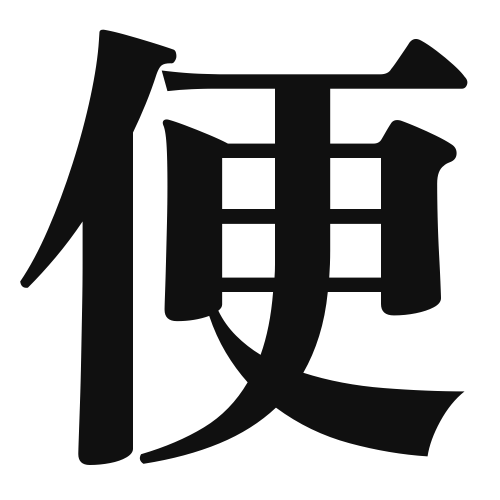1. Overview of Meaning
The kanji “便” (ben) primarily means “convenience” or “ease.” It can also refer to “toilet” in certain contexts, particularly in compound words.
2. Formation and Radical
Formation of the Kanji: The kanji “便” is a phonetic-ideographic character (形声文字). It combines the meaning of “to be convenient” with a phonetic component.
Radical: The radical for “便” is “亻” (the person radical), which often relates to actions involving people.
3. Examples of Usage
Common Words and Phrases:
- 便利 (benri) – convenient
- 便所 (benjo) – toilet
- 便り (tayori) – news or correspondence
Example Sentences in Daily Conversation:
- この道はとても便利です。 (Kono michi wa totemo benri desu.) – This road is very convenient.
- 便所はどこですか? (Benjo wa doko desu ka?) – Where is the toilet?
4. Synonyms and Antonyms
Similar Kanji:
- 楽 (raku) – meaning “comfort” or “ease,” but can imply a sense of enjoyment.
- 容易 (yōi) – meaning “easy,” which emphasizes simplicity rather than convenience.
Antonyms:
- 不便 (fuben) – meaning “inconvenient.”
- 難しい (muzukashii) – meaning “difficult.”
5. Cultural and Historical Background
Relation to Japanese Culture: The concept of convenience is highly valued in Japanese culture, reflected in the design of public spaces and services.
Proverbs and Idioms:
- 便利な世の中 (benri na yo no naka) – “a convenient world,” often used to describe modern advancements.
